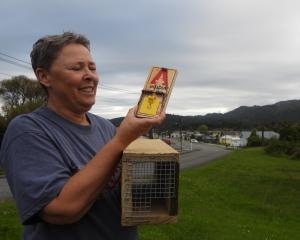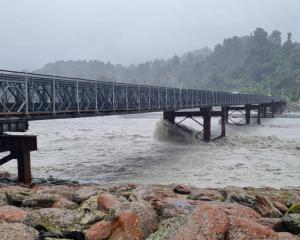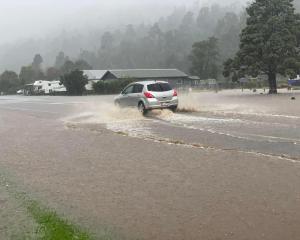Westland Milk Products has acknowledged whitebaiters' concerns about the treated wastewater discharge from the dairy factory into the Hokitika River.
It said in a statement yesterday it had been investigating the latest complaints whereby nets had apparently been fouled with dairy residue.
Westland Milk has since received a formal warning from the West Coast Regional Council over the discharge, between the end of October and November 2.
"While immediate investigations revealed no apparent problem with our treated wastewater system we accept that the photographic evidence suggests that our discharge was likely to be the cause of the problem," chief executive Toni Brendish said.
"We will fully co-operate with any regional council investigations. When the issue was made known to us at the time, our staff instigated immediate investigations with a view to resolve this issue for whitebaiters as soon as possible."
Ms Brendish said the issue highlighted the need for Westland Milk to take its treated wastewater discharge out of the Hokitika River.
In September last year the company reopened investigations into an ocean outfall for its treated wastewater discharge, which would take it out of the river two years ahead of the expiry of the existing in-river discharge consent, which was due to expire in 2021.
Ms Brendish said they hoped to report on those investigations early next year.Westland Milk has held consent for an ocean outfall for the past five years. Initially, it was taken out to reserve the option for the company while alternative treated wastewater discharge options were considered. Those investigations have since revealed that the ocean outfall is probably the best solution for the environment and would prevent future problems in the river.
The sea pipeline option is now being actively considered, with major engineering investigations being carried out to test the feasibility of the project to create detailed design and costings.
That proposal includes construction of a 3.74km-long pipeline from the dairy factory in Livingstone Street to an outfall point just south of the town sewerage treatment ponds.
Ms Brendish said the key advantage of the proposal was environmental.
"Should it proceed, we will take Westland's treated wastewater discharge out of the Hokitika River into a highly active ocean environment that's better able to cope with the inflow. The quality of the treated discharge would not pose any environmental issues for the ocean and there would be no health risk to the public. The intense wave activity will improve the speed with which the discharge is diluted and dispersed, and will present no threat to marine mammals, birds, fish and other organisms.
"This is an environmental gain that would be welcomed in our community and provide Westland with a more secure, environmentally superior option for the long-term management of our wastewater system."
Five years ago it was thought the ocean outfall could be located on a new pier built at the sewerage ponds, but Ms Brendish said new engineering investigations had recommended against that option.
The sewerage ponds site was deemed unsuitable for a number of reasons, including that excavation for the pipeline could risk the integrity of the ponds themselves.
"As a result, we are proposing an outlet further down the beach towards Hokitika, but still some distance north of the town, and well away from the area of the beach most popular with recreational users," she said.
The new location would only require an application for a minor variation to the original consent, as the original permit allowed for the outlet to be 'at or near' the Hokitika sewerage ponds.
Ms Brendish said the proposal also had potential for considerable cost savings for the dairy company.
"Our projections indicate that maintaining the wastewater discharge into the Hokitika River will become increasingly difficult and expensive for Westland. Long-term, the cost of establishing and maintaining an ocean outfall is likely to be much less than keeping it in the river."
The company was working with the Westland District Council, Kiwi Rail and other authorities to finalise the route of the underground pipeline, most of which would probably be along roadside reserves.
"We are also working with iwi, recreational and environmental groups to ensure their views are taken into consideration in the final design."
A recommendation including final-cost estimates will be considered for capital expenditure approval by the Westland Milk Products board in March 2018.
- Janna Sherman of the Hokitika Guardian











